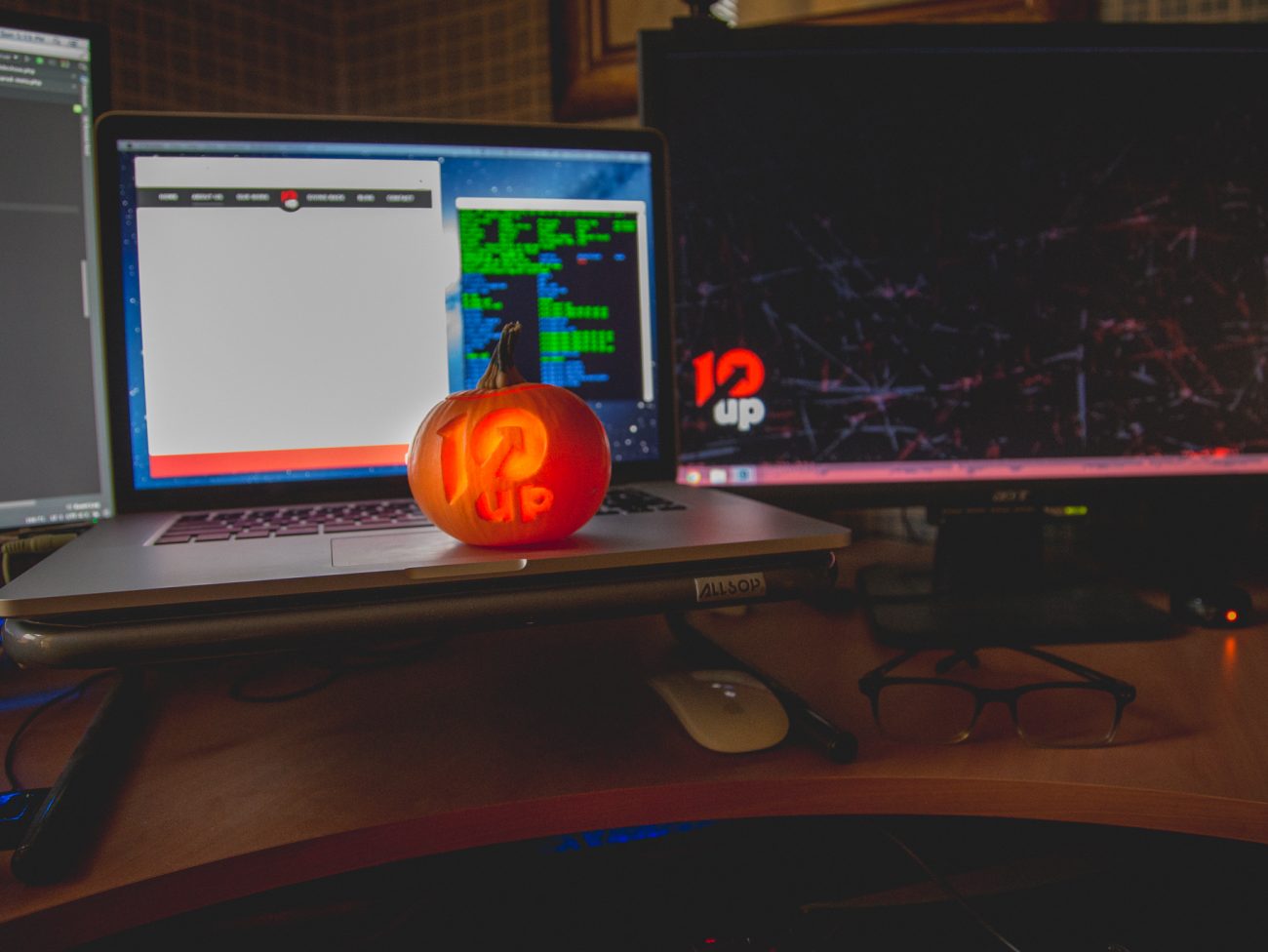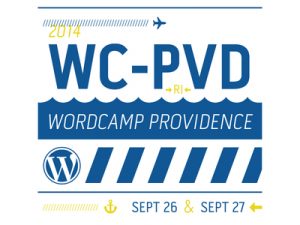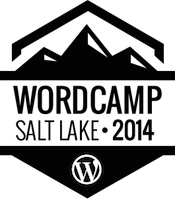Official Blog
10up Pumpkin

10upper Gustave Gerhardt took the opportunity (and his handy Speedball linoleum cutters) to create a little pumpkin in honor of 10up and Halloween, including an LED to light it from the inside.
Hope you all are enjoying a Halloween heavier on treats than tricks!
Meet ElasticPress
We are proud to announce the release of a new plugin, ElasticPress, to the WordPress community. The project started as an internal initiative to meet a particularly common yet difficult client request: improved WordPress search.
![]()
ElasticPress integrates WordPress search with Elasticsearch which has become increasingly prominent powering search on major enterprise websites such as Github and WordPress.com. Elasticsearch is a scalable, peformant, and open source standalone search server based on a technology from Apache called Lucene. Besides being fast and scalable, Elasticsearch can do things like relevant results, autosuggest, geographic search, fuzzy matching, data weighting, and more.
ElasticPress ties your Elasticsearch instance to WordPress. It is a lightweight plugin that overrides the WP_Query object to return posts from Elasticsearch instead of MySQL. There are a number of special WP_Query parameters that the plugin supports to do things like meta, taxonomy, and author searches. ElasticPress can also handle cross-blog search on WordPress multi-site installations.
Full documentation and usage instructions for the plugin are on Github. ElasticPress requires WP-CLI as it is preferable to handle things like bulk indexing through PHP CLI.
Please reach out on Github with any questions. We are happy to help and greatly appreciate contributions.
10up takes WordCamp San Francisco 2014
WordCamp San Fransisco was the first WordPress conference, has historically remained the largest (certainly on the North American continent), and is home to WordPress co-founder and project lead Matt Mullenweg’s annual State of the Word address.
In 2012, we brought the “whole team” out (all 14 of us), and watched with delight as our own Helen Hou-Sandi was called out in the State of the Word as a rockstar. In 2013, we decided that taking a team of ~35 was neither logistically practical nor a great way for us to focus on team building, so we brought a contingent of 8, and were proud to showcase four speakers and see Drew Jaynes called out as a rockstar.

WordCamp San Francisco 2014 is this weekend, and this time you’ll find a dozen (12) 10uppers roaming the conference. This year we’re proud to have 5 speakers participating:
- On Saturday, Helen Hou-Sandi connects her training as professional musician with her career as a code poet.
- Kicking off Sunday, Paul Clark inspires us by reminding how web publishing and WordPress can save lives and move governments.
- The three “WordPress in Context” lightning talks on Saturday feature 2 10uppers – and one 10up alumnus! 10up CEO John Eckman and Senior Engineer Rachel Baker are joined by former Engineering Director (now a leader in the university system) Jeremy Felt.
- Finally, our Creative Director, Taylor Aldridge, joins a set of Saturday lightning talks on Design & Business.

This week I’ll be representing team 10up at CSS Dev Conf in New Orleans. I’m honored to be speaking alongside industry luminaries like Chris Coyier, Dan Cederholm, and Rachel Nabors. On Monday afternoon, I present Embracing Performance Optimization, an essential ingredient for great user experiences. I’ll cover optimization of the critical rendering path, elimination of unnecessary roundtrips, and leveraging caching… And since it is CSS Dev Conf, I’ll dive deep into the keys to CSS performance.
10up Returns to Seattle GiveCamp
This weekend over 200 Volunteers and 28 Non-Profit Organizations are expected to gather on Microsoft’s campus in Redmond, Washington for the annual Seattle Givecamp, a weekend-long “hackathon” style event where software developers, website wonks, project managers and designers donate their time to design and build solutions for non-profit organizations in need. From health and wildlife outreach programs to community food coalitions, participating non-profits submit technology projects that require assistance they don’t have funding or expertise to carry out. Volunteers will gather on Friday to learn about each Organizations’s Project, form teams, and spend the rest of the weekend (often working through the night) hacking together solutions.
On Saturday morning I will be returning for a 3rd year to lead a workshop for participating organizations and volunteers on how to better leverage WordPress on their projects during the weekend and beyond. Many of the participating organizations are either already using WordPress, or have identified their project as requiring a WordPress component. In my session I will cover a variety of WordPress topics ranging from how to start using WordPress for the first time, to using some it’s more advanced APIs, to simple every day tips and tricks. The session will be Saturday morning at 10:30am and is open to the general public.
For more information about Seattle GiveCamp visit http://seattlegivecamp.org/ and follow them on Twitter @SeattleGivecamp. Best of luck to all the project teams this weekend, and if you’re in the Seattle area I hope to see you there!
Double Days of Discourse in Dallas
I’m proud to be joining my fellow 10uppers for not one, but two WordPress-focused conferences in Dallas, Texas this weekend!
Scott Kingsley Clark, Lead Developer of the Pods Framework for WordPress, will kick things off with several talks on Friday at PodsCamp, which focuses on the flexibility and varying use cases for the Pods plugin.
If Scott doesn’t collapse from exhaustion after giving four talks, he’ll join Corey Ellis, Jon Bellah, and myself at WordCamp Dallas the next day. Come say hello between sessions, or join us at one of our talks listed below!
Between the four of us, there’s content for WordPress developers of all skill levels: Corey will dig into WordPress themes for those just getting started. I’ll cover the benefits and trade-offs of several WordPress career tracks, while Jon will bring your development skills to the next level for high-performance sites. Want to know how to quickly extend WordPress to manage almost any type of content? Any of Scott’s talks at PodsCamp will fit the bill!
PodsCamp Dallas — October 3, 2014
Scott Kingsley Clark will be presenting four (yes, four!) talks on the popular Pods plugin:
- Introduction to Pods
- Pods and Gravity Forms
- Tweaks, Optimizations, and Workflow — Oh, My.
- Undercover Pods / WP Functions
WordCamp Dallas — October 4, 2014
10up at WordCamp Providence 2014
 On September 26-27, John Eckman and I will be attending WordCamp Providence at the University of Rhode Island. The excitement continues around the JSON REST API slated for core integration in the near feature. (I participated on the WP API team, along with fellow 10up’er Rachel Baker). A huge amount of work has gone into the API, and we are all super excited to present on it at WordCamps around the world.
On September 26-27, John Eckman and I will be attending WordCamp Providence at the University of Rhode Island. The excitement continues around the JSON REST API slated for core integration in the near feature. (I participated on the WP API team, along with fellow 10up’er Rachel Baker). A huge amount of work has gone into the API, and we are all super excited to present on it at WordCamps around the world.
I’ll be giving a talk covering the need for the API, cover REST basics, and teach developers to use the API. Having been the lead contributor to the Backbone client, I will be talking about how developers can use JavaScript to interact with the API. There are already some awesome JavaScript implementations of the API popping up such as my own _s_backbone.
If anyone is interested in talking about the API, working for 10up, or just generally chatting feel free to pull me aside!
10up goes to WordCamp Europe

This weekend marks the second annual WordCamp Europe, being held in Sofia, Bulgaria. I am very excited to be presenting on enhancing WordPress development by getting curious about core; inspired by the 10up experience of building with WordPress and building WordPress itself. I’m also excited to meet a large group of end users, developers, and contributors who many of us based in the United States have few opportunities to see in person, and look forward to collaborating with them at Monday’s Contributor Day.
10up takes Salt Lake City
 This Saturday, September 13th, I’ll be presenting at WordCamp Salt Lake City on the topic of JavaScript and jQuery best practices in WordPress. In light of the upcoming integration of the WP JSON API into WordPress Core, my presentation will focus on building high-quality, performant front-end code that can be safely distributed in the WordPress.org repo.
This Saturday, September 13th, I’ll be presenting at WordCamp Salt Lake City on the topic of JavaScript and jQuery best practices in WordPress. In light of the upcoming integration of the WP JSON API into WordPress Core, my presentation will focus on building high-quality, performant front-end code that can be safely distributed in the WordPress.org repo.
As WordPress grows beyond a publishing platform to become a powerful and highly extensible CMS with its own JSON API, the need to write clean, readable, and efficient JavaScript is becoming increasingly critical. My talk will cover some common pitfalls that can occur in JavaScript engineering, including overuse of DOM elements, improper variable scoping, and lack of closures within script files. In particular, I’ll explore current best practices in PHP WordPress engineering, with an eye towards applying those same lessons and standards to JavaScript.
Heckling me from the crowd will be various members of an entire 10up pod, visiting Salt Lake City as part of their annual pod retreat. 10uppers in attendance include Kailey Lampert, Rachel Backer, Cameron Benedict, Faison Zutavern, Erin Crutcher, Darin Kotter, John Bloch, Cole Geissenger, and Grant Landram.
If you’re a WordPress engineer looking to find out about the latest and greatest that the upcoming JSON API has to offer, as well as how you can create plugins that use the API effectively while still playing nicely with other plugins, this talk is for you.
NERD Summit? Count me in
 This weekend I’ll be headed out to Amherst Massachusetts for the New England Regional Developers Summit (see what they did there?).
This weekend I’ll be headed out to Amherst Massachusetts for the New England Regional Developers Summit (see what they did there?).
While most of the WordPress community is familiar with the concept of a WordCamp, it’s great to see more conferences which are multi-platform or platform agnostic, bringing together designers, developers, and users of Drupal and WordPress into the same conversation.
I’ll be giving a talk on Saturday on “The Word and The Drop: How Drupal and WordPress Handle Structured Content.” It’s way too much to really cover in 45 minutes, but I think it helps developers in both communities to see how the “other” platform handles content types and fields.
 John Eckman
John Eckman Taylor Lovett
Taylor Lovett Paul Clark
Paul Clark Helen Hou-Sandi
Helen Hou-Sandi Vasken Hauri
Vasken Hauri